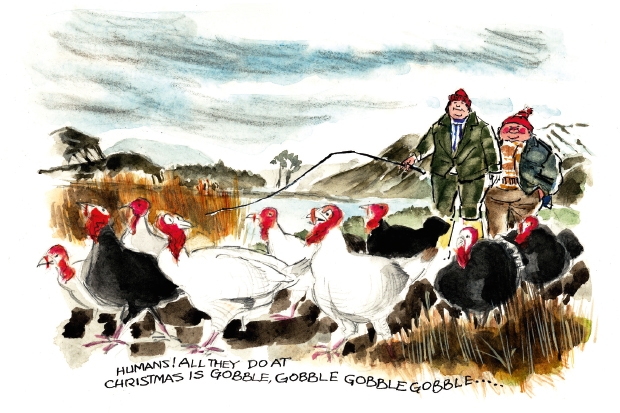Christmas is a time of celebration and giving thanks. In the old days we did this by feasting on meat. Whether it was a goose or a turkey at the centre of the table, it was a treat. The whole family would understand where the animal came from and perhaps have contributed to feeding, killing and preparing it. Every morsel would be appreciated. Nothing would be wasted.
Somewhere along the way, we have forgotten this. We eat meat all year round, including turkey. We have little idea of how the bird was raised, slaughtered or even cooked. We just gobble it up without a thought and the bones go in the bin.
Call it middle-class angst, but I’ve been worrying about this. If I’m going to eat meat, I want to be an ‘ethical carnivore’. I want to know exactly where it comes from. Also, I want it to taste good. So I decided to visit some of the most free-range turkeys in Britain to discover how to rear, kill and pluck your own Christmas dinner.
Lucy Beattie raises 50 to 100 turkeys every year to supplement her income. The turkeys fit in quite happily at her family’s small Scottish farm, scratching around close to the house for a few months and roosting at night in the barn to avoid a resident pine marten. When I arrive the lucky ones are guddling around the shore of Loch Broom. They look magnificent, even more so against a backdrop of snowy mountains, their constant gobbling more musical than you would expect.
Every year around 18 million turkeys are slaughtered in the UK, 10 million of them at Christmas. Most stay indoors in huge ventilated barns with sawdust on the floor and a minimum of eight hours’ artificial light.








Comments
Join the debate for just £1 a month
Be part of the conversation with other Spectator readers by getting your first three months for £3.
UNLOCK ACCESS Just £1 a monthAlready a subscriber? Log in